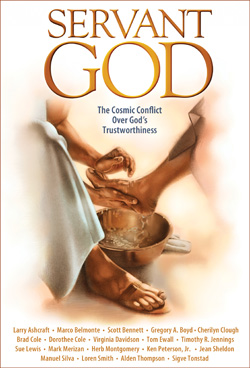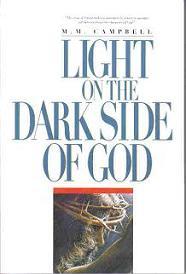The Shocking Truth About Moral Maturity

The pastor raises his Bible and reminds you for the thousandth time that moral maturity means you must stand by a plain “thus saith the Lord.”
Similar cries and pleas inundate you from all sides:
“Hold the standard high!”
“Stand by the old waymarks!”
“We need to define our doctrines more clearly.”
“Cry aloud and spare not!”
These cries seem foreign to your ears and even a bit confusing. What “thus” is the Lord saying to His people? What should you cry aloud, and whom should you not spare?
How do you define morality, and why do you need to?
Timothy R. Jennings brings significantly more understanding to these quandaries with his seven levels of moral development. He clearly explains how our level of moral development is a marker of our maturity in Christ and how a lack of maturity can divide us.
“And so we shall all come together to that oneness in our faith and in our knowledge of the Son of God; we shall become mature people, reaching to the very height of Christ’s full stature. Then we shall no longer be children, carried by the waves and blown about by every shifting wind of the teaching of deceitful people, who lead others into error by the tricks they invent.” Ephesians 4:13-14 Good News Translation (GNT)
The 7 Levels of Moral Maturity
Here are the seven levels of moral development as Mr. Jennings presents them:
1. Reward and Punishment
Morality is determined by whether one is rewarded or punished. There is no thought beyond what feels good or bad, so if evil is rewarded, then evil is done. Powerful rulers are moral, and mercy (failure to punish) is immoral. This is primitive, brainless “morality” on the level of infants, plants, and bacteria.
2. Marketplace Exchange
This moral level is echoed in a child’s cry, “That’s not fair!” This is an “eye for an eye and a tooth for a tooth” mentality. Retribution is a moral duty. Failure to retaliate is immoral.
The result of this thinking is a belief that if I do the right things, then God will be good to me (the prosperity gospel). Motives are self-serving, like an animal rolling over for a treat.
3. Social Conformity
Morality is determined by community consensus, and punishment is dealt out collectively. The majority is always right, and the other lemmings are followed right over the cliff.
4. Law and Order
Morality is determined by a law code. The law’s authority or the “long arm of the law” is rarely questioned. This is also a relatively thoughtless form of morality. One only has to ask what the rules are. If the law is obeyed, then one is secure and cannot be punished.
5. Love For Others
The best interest of others, not rules, determines morality. The good of others will be tended regardless of any law to the contrary. This requires other-centered motives. It is more complex because it requires moral reasoning and not merely an ordinance or scripture to back it up.
6. Principle Based
Morality is determined by how God designed life to 0perate. The rules are not arbitrary, just because God says so. Instead, reality only functions one way, and our thinking must engage and comprehend its principles of action in order that we may align with it.
7. Understanding Friend of God
Morality is an intelligent understanding of God’s purposes in His great controversy with Satan and evil. It also embodies a willingness to cooperate with God in these purposes.
“I’m no longer calling you servants because servants don’t understand what their master is thinking and planning. No, I’ve named you friends because I’ve let you in on everything I’ve heard from the Father.” John 15:15 Message
The Hazards of Infant Formula
We all go through every one of these levels in our moral development, but it is unhealthy to get stuck as some do. Many have such a militant and legalistic focus because it is hard for them—or any of us for that matter—to let go of the comfort of a law code. Clearly defined doctrines—standards, waymarks, and clear “thus saith the Lords”—give us a sense of boundary and security.
However, love is not safe. We all need to progress away from a law chiseled in stone toward a law written on our hearts. Then all our myriad rules melt into just two: love God and love each other—and we don’t even realize that those two things are rules!
This why Paul encourages us to get off infant formula—i.e., the dos and don’ts—and grow up in Christ:
“Anyone who lives on milk, being still an infant, is not acquainted with the teaching about righteousness. But solid food is for the mature, who by constant use have trained themselves to distinguish good from evil.” Hebrews 5:11-14
“Therefore let us move beyond the elementary teachings about Christ and be taken forward to maturity, not laying again the foundation of repentance from acts that lead to death, and of faith in God, instruction about cleansing rites [baptism/symbolic rituals], the laying on of hands, the resurrection of the dead, and eternal judgment.” Hebrews 6:1-2
Immaturity Is Sola Scriptura
Instead of integrating our lives into higher levels of moral function, too many of us are satisfied to play only by the rules. We operate exclusively and blindly on a “thus saith the Lord” and refuse to harmonize our lives with the other two threads that run alongside scripture: science and experience.
Yes, there are three threads:
- Science: “For since the creation of the world God’s invisible qualities—his eternal power and divine nature—have been clearly seen, being understood from what has been made, so that men are without excuse.” Romans 1:20
- Experience: “Taste and see that the Lord is good.” Ps 34:8; “Then he said to Thomas, ‘Put your finger here; see my hands. Reach out your hand and put it into my side. Stop doubting and believe.’” John 20:27
- Scripture: All Scripture is God-breathed and is useful for teaching, rebuking, correcting and training in righteousness. 2Timothy 3:16
Moral Maturity Runs Deeper Than Just Scripture Alone
Moral maturity goes beyond a “God said it, I believe it, and that settles it for me,” beyond a thoughtless adherence to rule-focused religion. As Jennings says, “A mature Christian must be able to draw conclusions from the evidence and integrate Scripture into reality-based experiences and life principles.” In other words, maturity is moving past a law written in stone to a law written on the heart.
Maturity includes scripture, but also includes interpretations that harmonize with the experience of love and incorporate principle-based living: understanding God’s design for life. Nature and divine experience (conscience) existed way before any written law.
“The great storehouse of truth is the word of God—the written word, the book of nature, and the book of experience in God’s dealing with human life.” E.G. White, Christ’s Object Lessons 125
“Jesus followed the divine plan of education… His education was gained directly from the Heaven-appointed sources; from useful work, from the study of the Scriptures and of nature, and from the experiences of life–God’s lesson books.” E.G. White, Education 77
Leave the Milk Behind
You have been frustrated and harassed by those whose “thus saith the Lord” feels more like a pyre or a rack. You have been persecuted by those who have confused “show my people their transgression” with an inquisition. They have made themselves judge and jury and have condescended to dictate the endless nuances of the law to you and everyone else who might be in violation.
Yet morality is both simpler and richer than all their judicial codes. You needn’t let those who have yet to mature destroy your faith in God’s church. Look to Christ, who dealt with this same law problem when He lived on earth.
It helps to understand this concept of moral maturity. It sheds light on just what is happening in our church today. It helps to understand why there are so many condemning and condescending attitudes among us and just how gentle a “cry aloud and spare not” should be.
Each of us need to look to ourselves to make sure that we are responding to Paul’s call away from milk to solid food. You and I, like our legalistic brothers and sisters in Christ, must make sure that we leave all infantile understandings behind, grow up to the very height of Christ’s full stature, and advance to level 7.
* A special thanks to Tim Jennings for many of these thoughts and his amazing teaching on this subject











